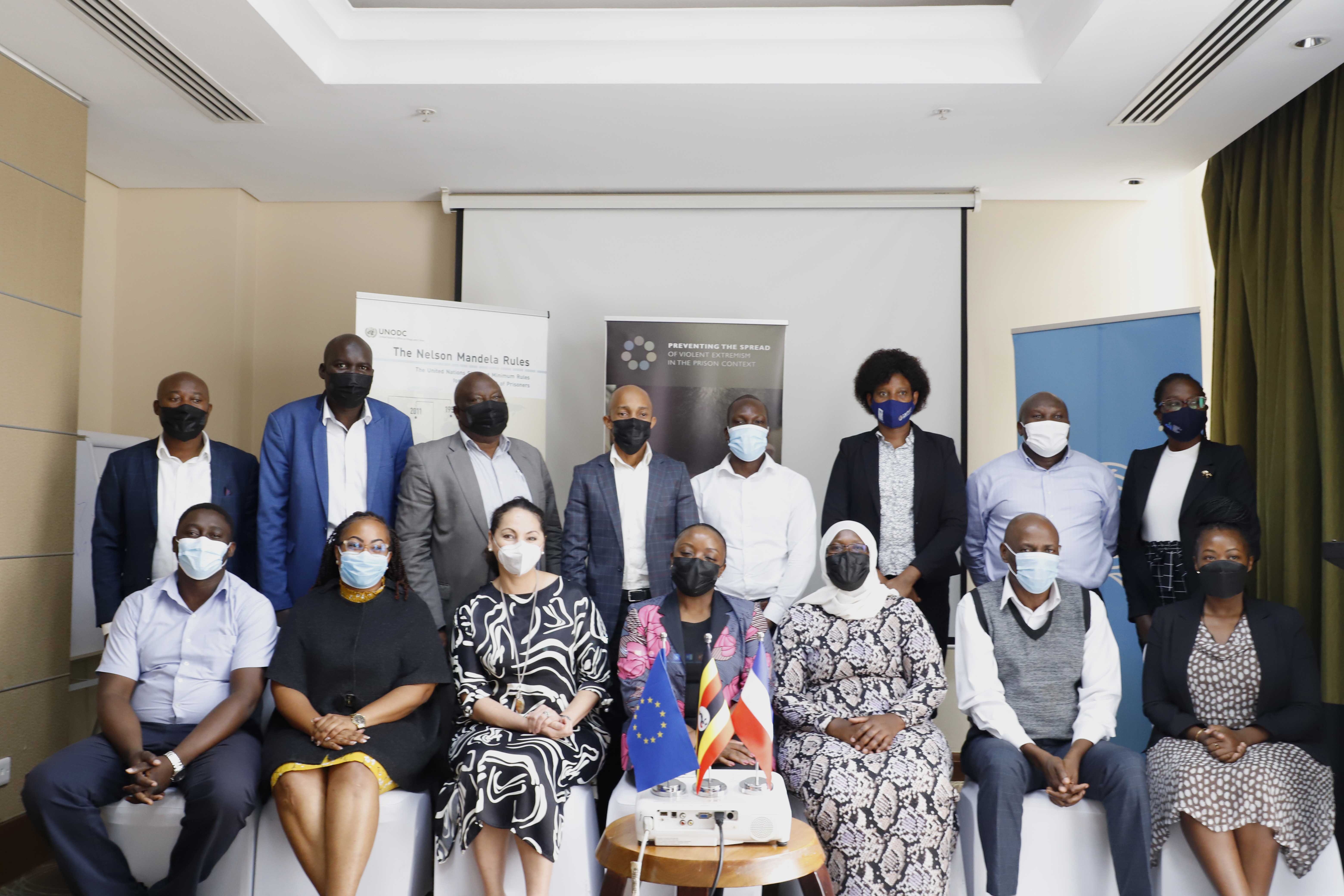UNODC Eastern Africa News and Stories
You are here: Home / News
UNODC in Uganda consults with Civil Society Organizations working on Preventing and Countering Violent Extremism (PCVE) and Prison Reform
On November 30th, 2021 UNODC held a consultation round table meeting with Civil Society Organizations (CSOs) working on Preventing and Countering Violent Extremism (PCVE) and Prison Reform in Uganda. The purpose of the meeting was to provide an opportunity for UNODC to update CSOs on the implementation of the Global Joint Initiative “Supporting the Management of Violent Extremist Prisoners and Prevention of Radicalization to Violence in Prisons” in Uganda, as well as to explore potential areas of partnership.
The meeting, which drew 18 participants (8 females and 10 males), focused on UNODC's strategic response to global prison challenges; a review of progress, challenges and opportunities in the implementation of the Joint Global Initiative and a plenary discussion on civil society engagement in preventing the spread of violent extremism in the prison context of Uganda.
During the roundtable consultation held in Kampala, the Global Coordinator for the Joint Global Initiative "Supporting the Management of Violent Extremist Prisoners and the Prevention of Radicalization to Violence in Prisons", Ms. Vera Tkachenko, emphasized the importance of working with civil society organizations, the media and academia as partners of the UN System in efforts aimed at preventing and countering violent extremism in prisons and communities. According to the Global Coordinator, UNODC promotes meaningful engagement of civil society actors in efforts aimed at social rehabilitation and reintegration of prisoners, including violent extremist prisoners. Civil society organizations are an important voice for reforms in the country, she stated.
In her presentation, Ms. Tkachenko informed the meeting that worldwide, the prison population is growing, and many prisons are overcrowded. The meeting was informed that the Uganda Prisons Service was currently operating at 320% of its official capacity. In response to the global prison crisis on prison overcrowding and the need to reduce re-offending, UNODC is working closely with Member States to develop national policies that promote alternatives to imprisonment, enhance prison management and rehabilitation and reintegration of prisoners, including violent extremist prisoners.
In the context of COVID-19 and other health risks, Ms. Tkachenko emphasized the need to recognize that prison health is also public health and there is an urgent need to advocate for the reduction of the prison population. “A World Bank report issued earlier this year revealed that more than 150 million people crossed the line into extreme poverty, which will of course have an impact on crime rates and the prison population,” Ms. Tkachenko said.
Ms. Sharon Nyambe, UNODC Head of Office in Uganda, reaffirmed UNODC’s commitment to work with CSOs, the media and the academia in preventing and countering violent extremism in the prison context. In her presentation, Ms. Nyambe shared key achievements in the implementation of the Global Initiative in Uganda, with much success in the area of capacity building of prison staff on PCVE. Unfortunately, due to COVID-19 restrictions hindering access to prison facilities, the programme had not made much progress in partnering with CSOs. However, Ms. Nyambe acknowledged the immense contribution of CSOs to rehabilitation and reintegration programmes in prisons and the need to forge strong partnerships. A whole of society approach is critical in the management of violent extremist prisoners, Ms. Nyambe said.
The roundtable consultation concluded with a plenary discussion in which representatives from civil society organizations and academia provided feedback on areas of reflection. Participants acknowledged the varied contribution and experiences of different CSOs in Uganda in as far as rehabilitation and reintegration of prisoners are concerned. However, there was a strong recognition that organizations were at different capacity levels and therefore called for capacity building of civil society organizations to expand the scope and quality of their work in supporting the management of violent extremist prisoners and prevention of radicalization to violence in prisons.

